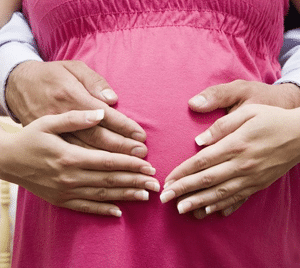
If you make dietary improvements before you become pregnant, they can have a much bigger effect than changes made later. So, rather than burning the candle at both ends while you still have the chance, use this time to prepare your body for a healthy pregnancy. Taking even a few steps in the right direction can help and, as your family grows, you will all reap the health benefits.
You are unlikely to know you are pregnant for about two weeks after you conceive, so it is worth erring on the side of caution when it comes to eating and drinking safely. That means avoiding excess alcohol and caffeine, and thinking more about food hygiene. You might find it helpful to read more articles or experts to find out which foods and drinks you need to avoid during pregnancy. Then, when you get a positive pregnancy test, you can celebrate without feeling guilty about what you have eaten or drunk over the past few weeks. Also, if you suffer from morning sickness and don’t feel like eating, you will know your body has a good store of nutrients to draw on.
Do
- Try to reach a healthy weight.
- Take a supplement containing folic acid every day. This is important in the very early days after conception, before you know you are pregnant, and will reduce the risk of having a baby with a neural tube defect.
- Eat a healthy, balanced diet.
- Be careful about food hygiene.
- Exercise to keep fit and relieve stress, but avoid vigorous exercise programmes as these can reduce fertility.
- Talk to your doctor if you have any medical condition, including asthma or epilepsy, or if you are taking any prescription medicines.
- Ask your doctor about the safety of any herbal supplements you are taking. Some that may boost fertility, such as chasteberry, should not be taken during pregnancy.
- Relax and make the most of life. You may get pregnant immediately, but it often takes a while. Stress reduces fertility and there won’t be much time for relaxing once you have a new baby to look after.
Don’t
- Drink any alcohol or if you do decide to drink, stick to no more than one to two units of alcohol once or twice a week and avoid getting drunk. Drinking more than this reduces fertility and increases the risk of miscarriage. A Swedish study of more than 7,000 women found that drinking more than two units of alcohol per day made getting pregnant more difficult, and even women drinking one or two units per day were more likely to have problems than women drinking less. Moderate alcohol intake is also known to affect development very early in pregnancy. A Danish study found that women drinking more than 10 units of alcohol a week around the time they became pregnant were four times as likely to miscarry.
- Take supplements containing high levels of vitamin A. It is better to stick to supplements specifically for pre-conception.
- Drink too much coffee, tea or other drinks containing caffeine. It is thought that caffeine might affect ovulation. It may also disrupt the smooth rhythmic waves that usually occur in the fallopian tubes to move the egg along to the uterus. It would be sensible to stick to the 200mg caffeine limit for pregnancy.
- Smoke, use recreational drugs such as cannabis or take supplements which have not been safety checked for pregnancy such as evening primrose oil.
